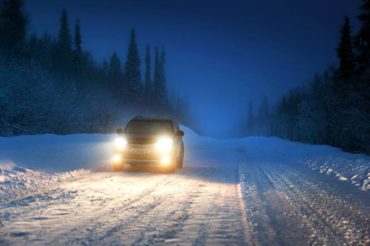 Weather can change quickly in our region, often taking people by surprise. And even though a snowstorm can hit any winter, many local residents are unprepared for a long, severe event.
Weather can change quickly in our region, often taking people by surprise. And even though a snowstorm can hit any winter, many local residents are unprepared for a long, severe event.
Last winter season was a good example. Were you able to leave your driveway? Many of our neighbors were stranded for a week or longer. And when school is out during this type of a severe event, many families see their food supplies stretched quite thin.
Here are some quick reminders of steps you can take to prepare for the next winter emergency.
1. Prepare to be on your own for longer than three days.
While being prepared for a three-day emergency is used as the golden rule, in rural areas especially, that’s not adequate. In a major disaster, a rural area is not a high priority for disaster relief. A remote location can further delay response.
“Prepare for a week on your own,” advises North Mason Regional Fire Authority firefighter/EMT Ryan Cloud.
This includes having enough nonperishable food for the entire family as well as your pets, one gallon of water per person a day (more if you have pets), flashlights with extra batteries and a first aid kit. (See a suggested list at www.ready.gov/build-a-kit.)
2. Be ready to wait longer in a medical emergency.
During the last winter storm, the local emergency responders were overwhelmed. Many people couldn’t drive themselves to the hospital, and emergency agencies had an increased volume of calls. At the same time, getting to some areas was very challenging due to road conditions.
“Crews can take a long time to get to get to you in that type of a disaster, so be prepared for that,” Cloud said.
3. Get your car ready.
In a weather emergency, you may need to spend a night in your car. Make sure you have the right supplies, including warm blankets, snacks, bottled water — and even entertainment for younger kids.
“Prepare for your family size and for individual needs,” Cloud said.
4. Keep extra medications and medical equipment on hand.
If you have a medical condition that requires critical medications or supplies, don’t wait to refill them when you’re completely out. If you use an oxygen tank, ask your supplier for an extra tank — many providers are willing to accommodate patients ahead of winter weather. Don’t forget to have a backup power source for all your medical equipment.
5. Always think safety first.
An extended power outage creates the need for alternative heating and cooking methods. However, it’s critical to keep safety in mind. Never use a barbecue grill, camping cookstove or a generator, however small, in an enclosed area.
“You can get carbon monoxide poisoning even when you run gas-powered and other outdoor equipment in the garage,” Cloud said. “Make sure to follow proper safety.”
Avoid driving on hazardous roads whenever possible. When in doubt, simply don’t go out — not only is traffic likely going to cause major delays but you’re risking getting injured on the road.





















Comments